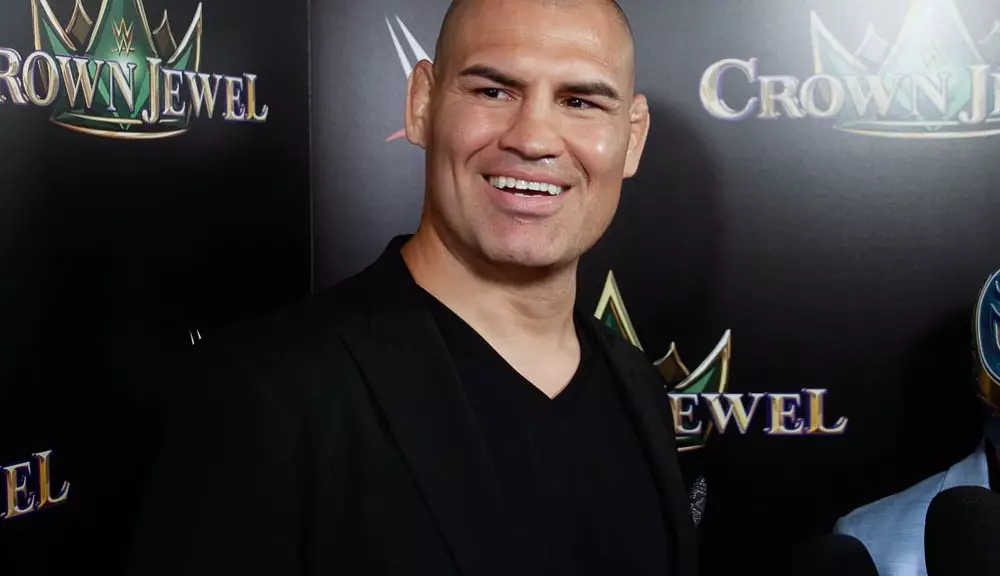Cain Velasquez, once hailed as a titan in the UFC with his unparalleled achievements in the heavyweight division, has experienced a fall from grace that has captivated and polarized public opinion. The former champion’s recent sentencing to five years in prison for his role in a shooting incident has revealed the intricate layers of fame, justice, and the human condition. His journey is more than a simple tale of a man making a drastic error; it reflects the struggle between personal anguish and societal responsibilities.
In February of 2022, Velasquez found himself embroiled in a high-speed chase that culminated in gunfire directed at a vehicle containing Harry Goularte, a man implicated in the molestation of Velasquez’s young son. The horrifying circumstances surrounding the assault on his child overshadowed Velasquez’s actions in the eyes of many. The emotional turmoil a parent feels when confronting the threat of harm toward their offspring is profound and difficult to rationalize. Yet, the very act of resorting to violence raises significant moral questions. Did Velasquez’s instinct to protect his child justify his criminal actions, or does this incident underscore the dangers of allowing emotional pain to dictate our decisions?
Judicial Struggles: A Torn Community
The courtroom was a microcosm of societal strife during Velasquez’s sentencing. Spectators filled the room, their emotions running high, representing a community grappling with conflicting sentiments. On one side stood those who empathized with Velasquez, understanding the depths of a father’s love and the desperation that can spur one to take drastic actions. On the other were the victims—the Goularte family—asserting their fear and condemnation of Velasquez’s unwarranted aggression.
Judge Arthur Bocanegra’s emotional ruling highlights the complexity of this case. The judge acknowledged the weight of Velasquez’s actions yet opted for a lighter sentence, taking into account his previous standing in the community and the long duration Velasquez had already spent in custody. The leniency of the sentence, credited with 1,283 days already served, seems to signal a recognition of the extraordinary circumstances surrounding the incident. Still, this decision did not appease all parties. The Goularte family expressed disappointment over what they viewed as an inadequate punishment for the emotional and physical trauma they have endured.
The case reflects broader societal issues regarding justice and retribution. Many observers question whether the legal system adequately addresses the ramifications of vigilantism, especially in situations involving parental instincts. While Velasquez’s actions stemmed from a place of pain and fear, they cannot be viewed in isolation from the potential consequences of unleashing violence in response to perceived injustice.
The Role of Fame in Personal Tragedy
Velasquez’s celebrity status amplified the public’s scrutiny of his actions. The pressures of fame bring heightened expectations and a public platform that can distort personal experiences. For a decorated athlete used to the adoration of fans, grappling with personal crises can be magnified on a national stage. The repercussions of such exposure present unique challenges—not just in terms of legal accountability, but in coping with the overwhelming emotional landscape that follows.
Velasquez himself has commented on the need to channel anger into positive avenues, acknowledging the importance of fostering communication with his own children. His statements about forgiveness reflect a desire to break free from the cycle of hate and pain, suggesting a glimmer of hope that he seeks to preserve within his family unit. This outlook is commendable but serves as a reminder of the complexities surrounding emotional trauma and healing.
However, the challenge lies in translating this awareness into actionable societal change. The need for better communication around sensitive issues such as child safety and consent is evident. Velasquez’s perspective on parental guidance could become a crucial educational tool for other families navigating similar fears, but it remains overshadowed by the violent act that sparked his reflections.
The Ripple Effect of Personal Choices
Ultimately, Cain Velasquez’s story serves as a stark reminder of the interconnectedness of our choices and their societal repercussions. For every action, there is a reaction that often goes beyond the individual—impacting families, communities, and institutions. As Velasquez faces his sentence, the implications of his actions continue to resonate in profound ways. The incident has ignited discussions surrounding parental instincts, the adequacies of the justice system, and the challenging road towards healing for all parties involved.
This case serves as a conversation starter about how society handles issues of trauma, justice, and healing. Understanding that people often operate under immense emotional strain can lead to greater empathy and potentially catalyze meaningful reforms. As the Velasquez narrative unfolds, it remains essential to learn from these complex human experiences, striving for compassion in our judgments and reflections on justice.

